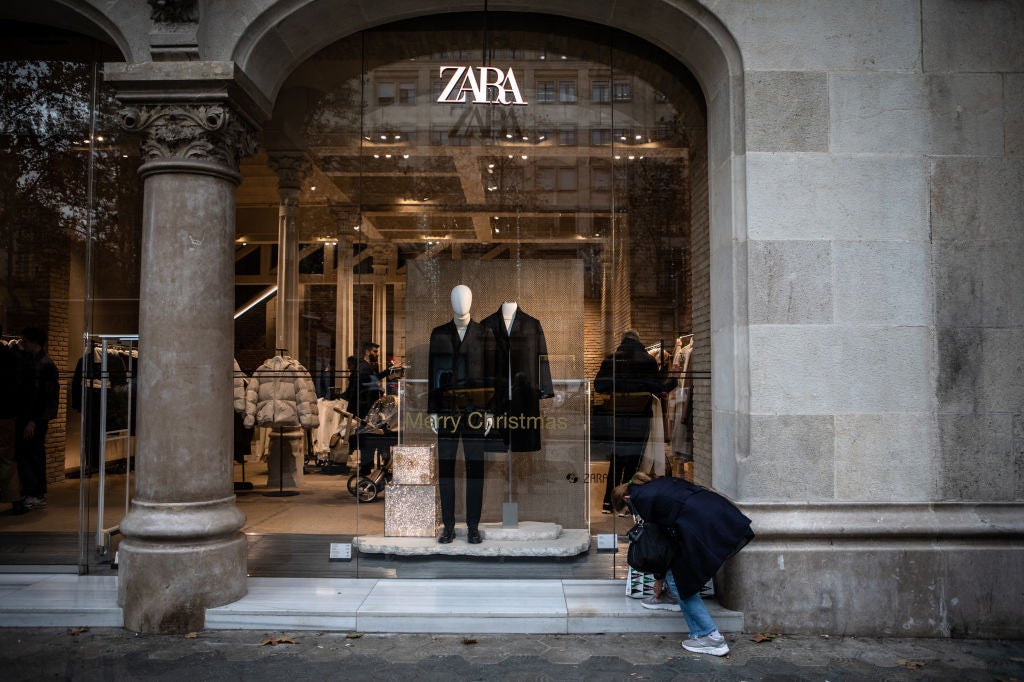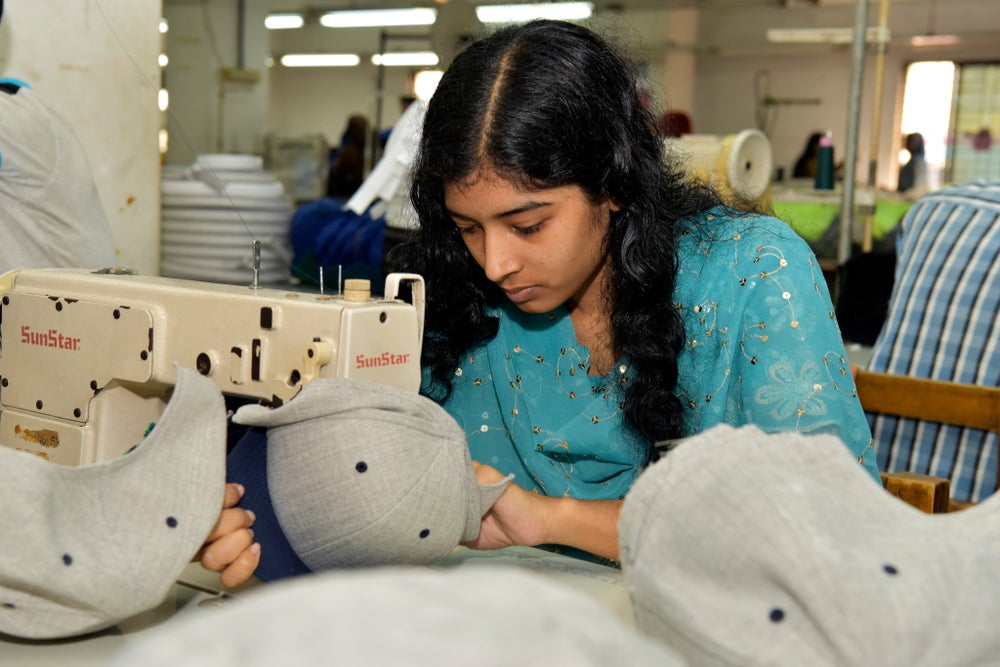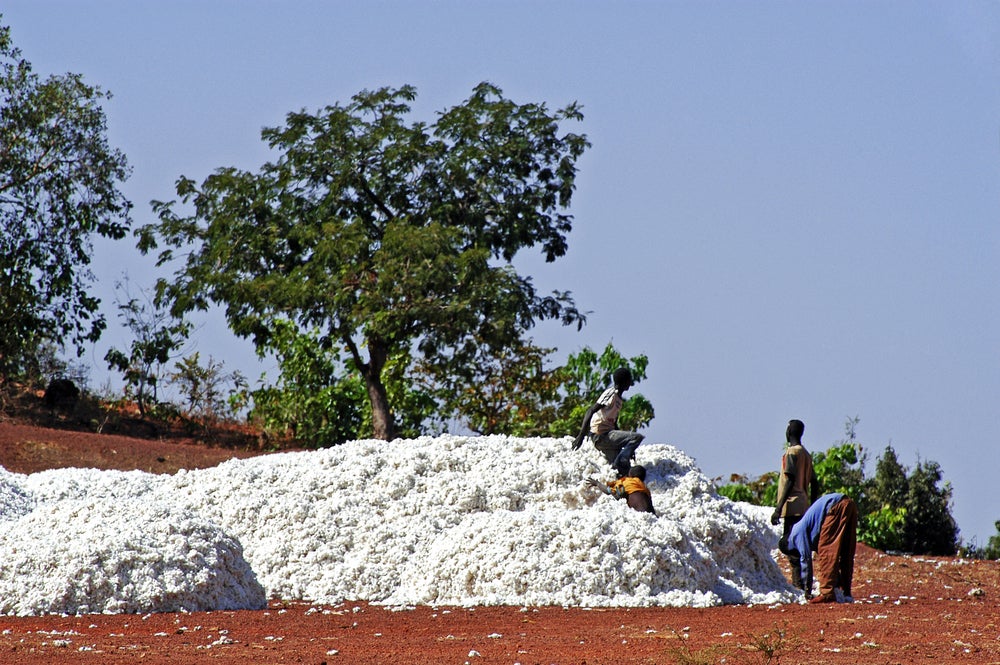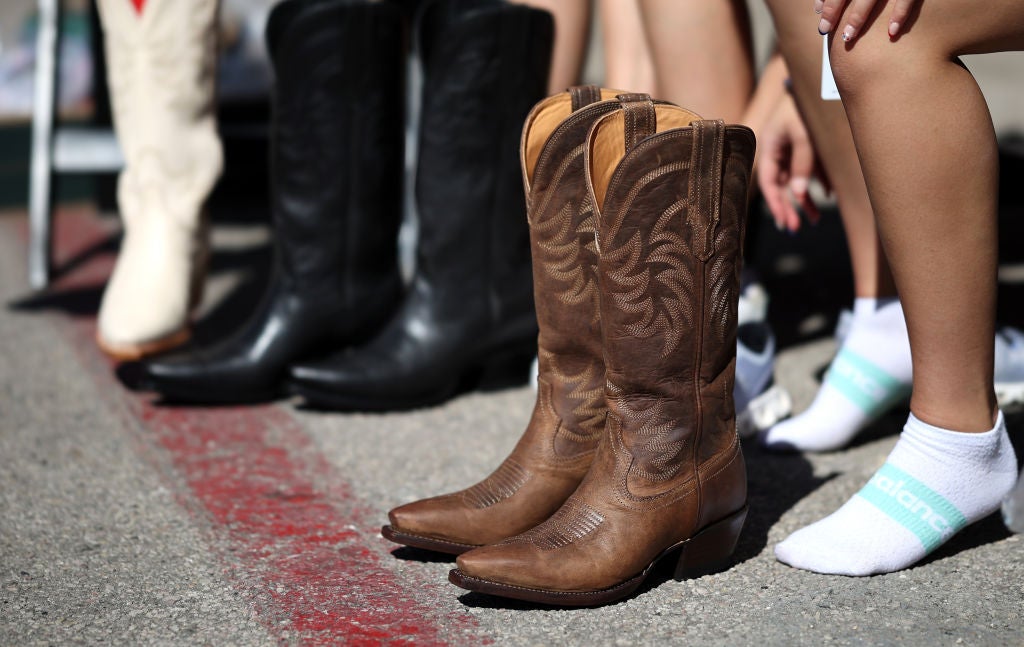Canadian corporate ethics watchdog CORE recently launched an independent fact-finding investigation into Zara Canada over allegations of forced labour links. It has now published its Initial Assessment report, which follows a complaint filed by a coalition of 28 civil society organisations in June 2022.
The Zara Initial Assessment report details the allegation that the company has supply relationships with Chinese companies identified as using or benefitting from the use of Uyghur forced labour.
However, Zara denies the allegations, telling CORE that the complaint is "inadmissible" because the alleged human rights abuses do not arise from its operations. "It claims to have no commercial relationship with any factory in the Xinjiang Uyghur Autonomous Region (XUAR)," says CORE.
What is the complaint about?
The complainants allege that Zara has supply chain links with three Chinese companies that the Australian Strategic Policy Institute (ASPI) identified in March 2020 and the Helena Kennedy Centre for International Justice (HKCIJ) identified in June 2022 as using or benefitting from Uyghur forced labour.
According to the complainants, the use of Uyghur forced labour by Zara's suppliers started before 1 May 2019 and is ongoing.
The complaint claims that Zara Canada has relationships, or supply chain links, with Huafu Top Dyed Melange Yarn Co Ltd, Shandong Zoucheng Guosheng and Xinjiang Zhongtai Group.
In support of their allegations, the complainants refer to the findings documented in the ASPI report, claiming that between April 2017 to June 2018, Huafu Top Dyed Melange Yarn was one of 15 factories that received a percentage of the 2,048 Uyghur labourers who were taken from Hotan Prefecture in Xinjiang to Anhui Province.
CORE adds that the ASPI report references a Chinese media source claiming that Zara is one of "Huafu’s long term customers."
The complaint also alleges that in November 2019 a satellite factory of Shandong claimed that it "brought over 3,500 jobs to Xinjiang." According to the ASPI report, these jobs were "set to be the biggest Xinjiang Aid [i.e., labour transfer] project in Kashgar Prefecture."
The evidence submitted to CORE details that Texworld USA, a US-based international business platform, identified Shandong’s parent company, Jiangsu Guotai Guosheng Co Ltd (JGG), as a supplier to Zara.
The complainants also refer to findings documented in the HKCIJ report "Built on Repression," alleging there is a high risk of Uyghur forced labour at Xinjiang Zhongtai Group and that one of its subsidiaries is a supply chain partner of Zara.
They claim that Zara has "not addressed, nor intends to address," its connections with the Chinese organisations detailed in the report. The complainants further note that there is "no indication" that Zara has taken any concrete steps, such as desk-based due diligence, to ensure "beyond a reasonable doubt" that its suppliers are not using forced labour.
Summary of the Initial Assessment Report by CORE
CORE explains that on the basis of the information provided by the complainants, it decided the complaint was admissible pursuant to section 6.1 of the Operating Procedures.
This means that CORE decided there was sufficient information for the complainants to form a reasonable belief that each of its three admissibility criteria were met.
During the initial assessment meeting on 18 November 2022, CORE says the complainants expressed willingness to participate in early resolution or mediation, including agreeing to terms of confidentiality.
The complainants also told CORE they were ready to work towards a "systemic resolution" that does not name Zara and that finds solutions to address the possible use of Uyghur forced labour and that would help Canadian garment companies to undertake appropriate human rights due diligence (HRDD) in this high risk context.
The complainants also suggested that, given the complexity of tracing the origin of textiles, particularly from Xinjiang, it is preferable that garment companies use fibre tracing technology to map their supply chains from fibre to retail.
CORE says the complainants understand that Zara is interpreting Operating Procedure 5.7.2 as a question of whether the alleged human rights abuse arises, in fact, from the operations abroad of a Canadian company in the garment, mining or oil and gas sectors.
The complainants claim that this interpretation is incorrect and that at the admissibility stage, CORE is making a determination only that an allegation has been made.
Zara Canada's response to the allegations
By way of letter, Zara Canada provided a response to the complaint, taking the position that CORE lacks jurisdiction to review the complaint.
The fashion brand told CORE that by proceeding with the initial assessment of the complaint, it had "violated Zara’s right to procedural fairness".
In response to CORE’s letter, dated 1 February 2023 requesting participation in a second initial assessment meeting to discuss Zara’s objections to the complaint, Zara declined to meet. The brand stated that further assessment would be premature given its objections with respect to jurisdiction and admissibility, and concerns around confidentiality of information.
CORE says that in order to move forward with mediation or joint fact-finding, the agreement of both parties is essential.
It adds: "The complainants indicated that they are open to all dispute resolution options. Zara Canada declined to participate in mediation in its 16 January 2023 letter because it believes the complaint is inadmissible. Consequently, it appears that mediation is not currently a viable option."
What happens now?
The Canadian corporate ethics watchdog will proceed with an investigation through independent fact-finding, adding that mediation is available at any stage of the complaint process, at the Ombud’s discretion, and with the agreement of all parties.
Zara's parent group Inditex and Chinese entities Huafu Top Dyed Melange Yarn Co Ltd and Xinjiang Zhongtai Group did not respond to Just Style's request for a comment at the time of press, while Shandong Zoucheng Guosheng could not be reached.
Earlier in August, CORE published its Initial Assessment report after complaints were filed by a coalition of 28 civil society organisations against Ralph Lauren Canada LP (Ralph Lauren Canada) in June last year.
Starting in 2024, Canada’s "Fighting Against Forced Labour and Child Labour in Supply Chains Act" will require brands, retailers and importers to identify and prevent human rights violations within their supplier networks.















